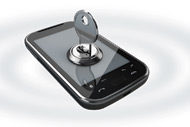Originating in the 1970’s, outsourcing has continued to develop and expand in its application and uses. What was once considered simply a cost-savings tactic, outsourcing has evolved into an effective strategy for overall business growth. Increasingly, companies, both within and outside the health care industry, are reevaluating the use of outsourcing as a way to avoid being bogged down by business functions outside of their expertise, allowing them to focus on their core competencies.
It increases business intelligence.
Business Process Outsourcing focuses on contracting the operations and responsibilities of a certain business function or process to a third party. In the decades since its practice first became wide-spread, it has evolved into an integral part of many businesses’ decision-making processes. A 2014 Deloitte study noted that 66 percent of respondents want access to the thinking and expertise third-party companies provide, which their own company often lacks due to resource and cost constraints.
It’s financially sound.
Cost reduction is the name of the game and the main reason companies outsource. And why not? Outsourcing non-essential functions allows you to free up capital that can be otherwise allocated to better serve patients, hospital staff, and loved ones of those receiving care. As an added benefit, your facility has access to specialists who can better optimize your business. In fact, 79 percent of respondents say they don’t believe their service providers are too costly.*
Allows for smoother operations.
As a health care provider, your expertise should always be focused on serving your patients. By outsourcing non-core functions, you have access to vendors whose expertise surpasses your own in those varying areas. These third party vendors are often free of internal politics, so they can effectively identify the issues plaguing your business, while offering real solutions and suggestions. They can bring in a new perspective, which can be very refreshing – and sometimes game changing.
According to KPMG's 2013 Global REFM Outsourcing Pulse Survey, nearly 65 percent of services being outsourced are workplace-related. While most assume these services are back-office infrastructure/operations, they can also be customer facing.
Perhaps more so than in any other industry, the role of furniture and office furnishings within health care facilities is undeniable. Unlike most industries, the furniture in health care facilities can be in use literally around the clock. From lounge and waiting areas to health care office spaces, the optimal furniture can help contribute to the overall success of your facility. To maximize your operational efficiency, it is essential to have furniture that works as hard as your staff, even in transitional times.
Furniture rental remains flexible so that your furniture is there when you need it, and removed when you don’t. While the needs of your staff are constantly changing, furniture rental is a way to keep your facility nimble and flexible, allowing you to update both the furniture and configuration as often as you need to keep your teams productive.
The industry is changing, adapting, and growing to meet the needs of its consumers. Faced with that kind of reality, you need a trusted partner to help you through it.





